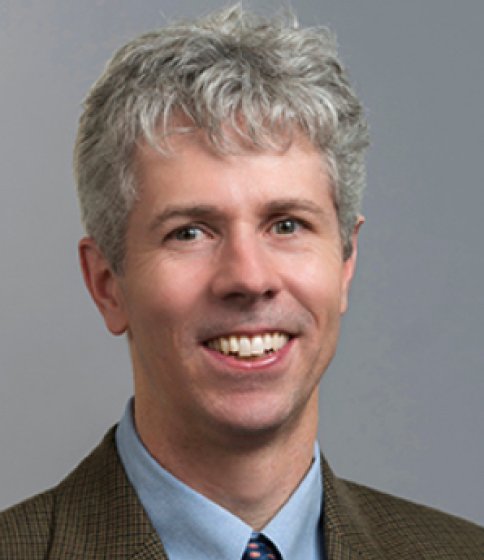
William H. Dow
University of California, Berkeley
William H. Dow is a Professor of Health Policy and Management in the School of Public Health. His research contributes to improvements in health policy and healthy aging among vulnerable populations locally and globally. He also directs the UC Berkeley Center on the Economics and Demography of Aging. Dow’s research analyzes economic aspects of health behaviors and health and demographic outcomes. This includes work and family health studies on health reform, paid leave, and other employment-related income and benefits policies. Honors include the Kenneth J. Arrow Award given by the International Health Economics Association. He is also a research associate at the National Bureau of Economic Research, and previously served as senior economist for health at the White House Council of Economic Advisers. Dow holds a PhD in economics from Yale University.
-
Children and FamiliesAmong Low-Income Women In San Francisco, Low Awareness of Paid Parental Leave Benefits Inhibit Take-Up
Paid family leave policies have the potential to reduce health disparities, yet access to paid leave remains limited and unevenly distributed in the United States. The US is the only OECD country that does not provide paid leave for new parents, and just 8 states and the District of Columbia have passed partially-paid family leave policies. In a new paper, Julia Goodman of the OHSU-PSU School of Public Health, Will Dow of UC Berkeley, and Holly Elser of Stanford University examine the impact of the 2017 San Francisco Paid Parental Leave Ordinance (PPLO), the first in the US to provide parental leave with full pay.
July 7, 2020
|Evidence
| -
Children and FamiliesExpanded Job Protection Improves Racial and Socioeconomic Equity of Parental Leave Access
Paid family and medical leave has important health benefits for parents and their children, but access to job-protected leave is limited and highly disparate in the United States. Increasingly, state and local governments have established policies such as paid leave to support parents and other caregivers. While these policies have been crucial in enabling more workers to take leave, their effects have been weakened due to only partial coverage of job protection laws. As part of their ongoing work evaluating the 2017 San Francisco Paid Parental Leave Ordinance, investigators Julia M. Goodman (Oregon Health & Science University/Portland State University) and William H. Dow (University of California, Berkeley) published an issue brief examining paid leave protections in the California Bay Area.
July 1, 2020
|Evidence
| -
Children and FamiliesWho Cares If Parents Have Unpredictable Work Schedules?: The Association Between Just-in-Time Work Schedules and Child Care Arrangements
Low-income working parents often face routine uncertainty in their schedules because of “just-in-time” scheduling practices that offer workers little notice of when they will be expected to work. In a new working paper, Kristen Harknett, Daniel Schneider, and Sigrid Luhr of P4A’s Research Hub at University of California, Berkeley, examine the consequences of unstable and unpredictable work schedules on child care arrangements.
October 15, 2019
|Evidence
| -
Income and WealthCan Economic Policies Reduce Deaths of Despair?
William H. Dow, Anna Godoey, Christopher Lowenstein and Michael Reich released a National Bureau of Economic Research Working Paper investigating whether “deaths of despair” respond to two key policies that raise incomes for low-wage workers: the minimum wage and the Earned Income Tax Credit (EITC).
April 29, 2019
|Evidence
| -
Children and FamiliesEvaluating the San Francisco Paid Parental Leave Ordinance: Employer Perspectives
In a new issue brief examining the 2017 San Francisco Paid Parental Leave Ordinance, Julia M. Goodman, William H. Dow and Holly Elser find little evidence that implementing new paid family leave policies or expanding existing policies negatively affects employers.
February 1, 2019
|Evidence
| -
 Children and FamiliesA Critical Juncture for Health: Heidi Hartmann and Will Dow Discuss New P4A Research Hub on Work-Family-Supports
Children and FamiliesA Critical Juncture for Health: Heidi Hartmann and Will Dow Discuss New P4A Research Hub on Work-Family-SupportsHeidi Hartmann and Will Dow are the codirectors of P4A’s new Research Hub at the Institute for Women’s Policy Research and the University of California, Berkeley. We sat down with them to learn more about their research portfolio and why it matters for policymakers, advocates, and community leaders.
October 25, 2018
|P4A Spark
| -
This project will investigate if state Paid Family Medical Leave (PFML) policies narrow racial and ethnic gaps in access to paid leave; and, in states with PFML laws, do workers of color (especially immigrant workers) understand their rights as well as other workers?
September 1, 2022
| -
This study will examine whether these policies reduce racial and ethnic disparities in a set of adverse mental health and substance use outcomes that have been increasing in prevalence over the past two decades.
September 1, 2022
| -
Income and WealthThe Effect of Minimum Wages on “Deaths of Despair”
In 2017, economists Anne Case and Angus Deaton coined the phrase “deaths of despair” to describe a troubling rise of Americans dying from suicide, drugs (including opioids) and alcoholism. Experts across the country are now attempting to tease apart the complex factors driving these trends, but until now, no one has examined the potentially causal effects of decreases in real minimum wages in relation to this trend or the potential benefits of rising minimum wages in counteracting other drivers of this trend, despite a strong evidence base linking income and health.
July 15, 2018
|Has Evidence
|
Pagination
- Page 1
- Next page